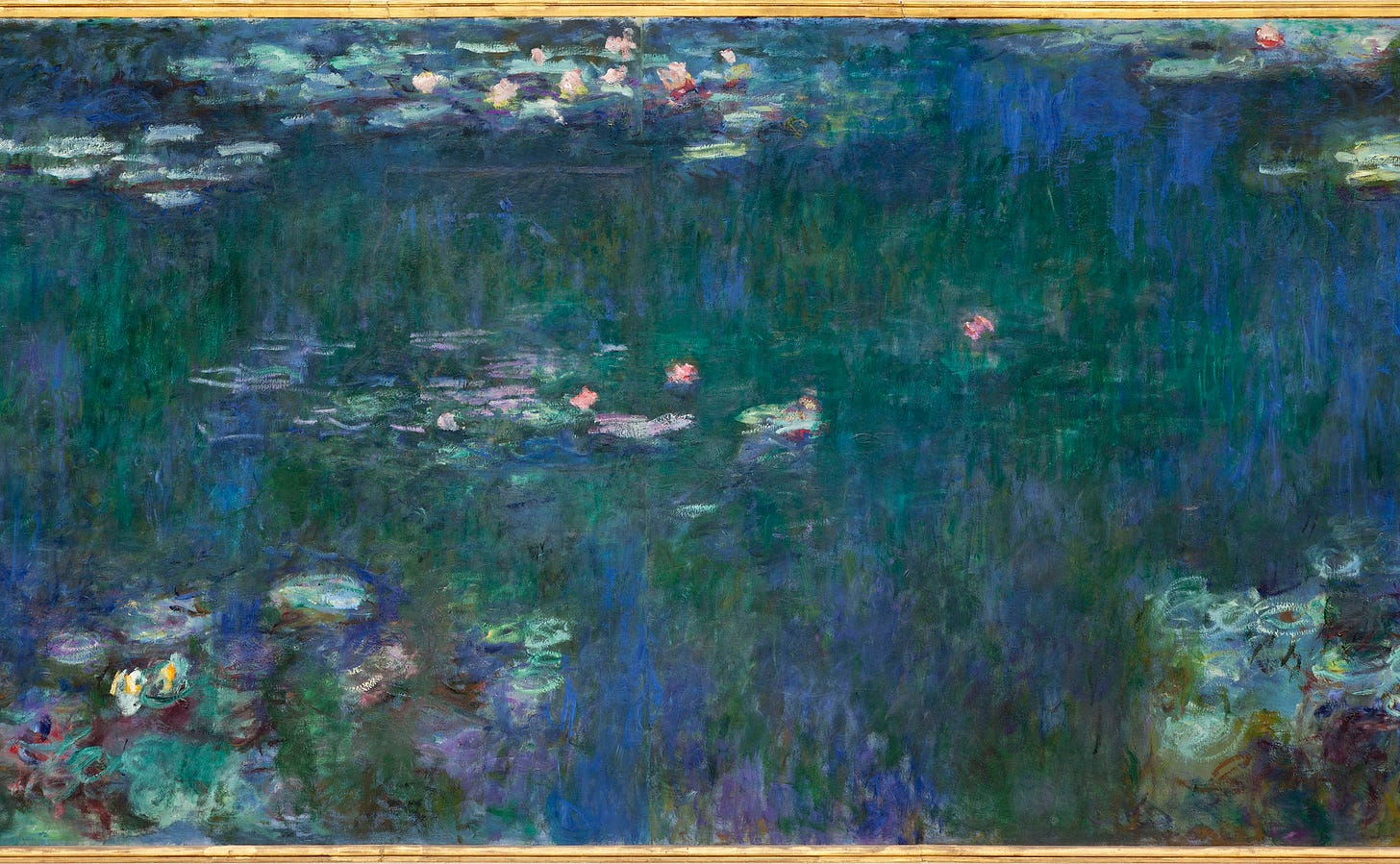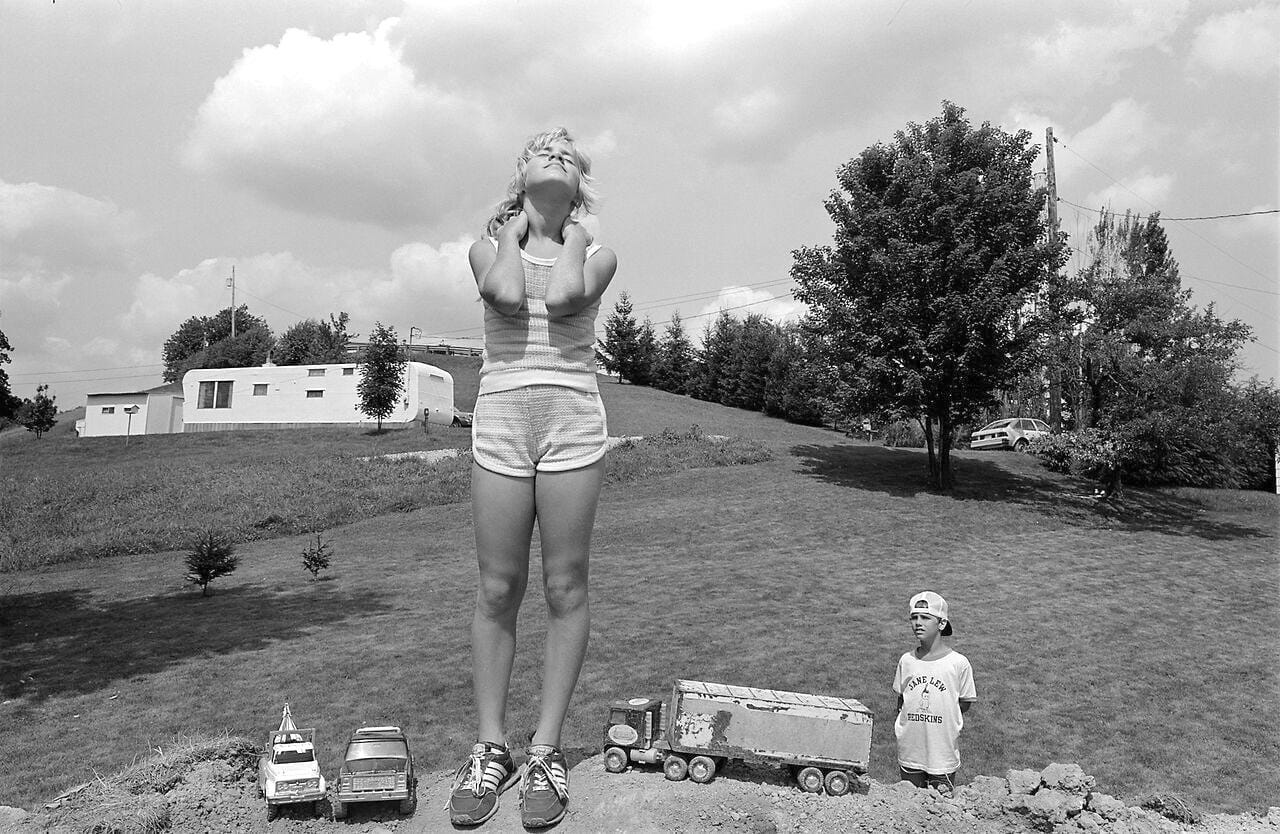“There are at least a billion people on Earth that - at this moment - would consider their prayers answered if they could trade places with you. To have your health, even just sort of… to have friends, even only a few… to have spent this day free from some terrifying encounter with chaos… is to be lucky.”
Sam Harris
We are masters at noticing what’s missing from our lives. We expertly focus on what we lack, what could be better, and what might finally make us feel whole. In our hurry to shape a better future, we often rob ourselves of something essential: the ability to appreciate what’s already here.
Gratitude takes practice. It calls for small pauses where we notice, name, and cherish the good, which is why the upcoming tradition is one I can get behind. Giving thanks invites us to stand beside our striving and simply appreciate what is; it reminds us that while our lives may be incomplete, they are also undeniably abundant.
This is one of rare those times when a cliché earns its place: gratitude is good for us - and we can nurture it more often. Below are three paths through the landscape of appreciation. They may not be groundbreaking, but they don’t need to be; gratitude works best when it’s simple, intentional and sincere.
Look Again
The Last Time
The Happy Absence
The Reverse Bucket List
Afterword: Between the Ages
1 The Last Time
“If anything is to be honored and blessed, it should simply be this: the priceless gift of sheer existence. What else do we have? What else other than this miraculous interval of being and self-awareness?”1
Perhaps the easiest path into gratitude is asking yourself, “What if today was the last time I could experience any of it? What if this was it?” When we think in “last time” terms, everything suddenly becomes beautiful:
waking up next to her
the quiet rose color of morning
Beethoven at breakfast
knowing what love feels like
the crisp elegance of late-autumn
a warm shower and clean clothes
the view of the lake on the drive into town
the geometry of beautiful buildings
skill acquisition and meaningful work
gossipy exchanges with trusted colleagues
an evening visit to the local museum
coming home to familiar faces and fond hellos
a table set with cut flowers in jelly jars
the playful buzz between glasses two and three
tidying the house in timeworn pajamas
the moments alone with the piano
the moonlight through the window
Gratitude is like catching onto a secret that’s been hidden in plain sight. When you slow down and pay attention, the simplest moments - ones you barely noticed before - reveal their brilliance.
Water Lilies (Reflets d’arbres), Musée de l'Orangerie, Monet 1918
2 The Happy Absence
Sometimes, what isn’t present in our lives deserves as much recognition as what is. The absence of hardship - the struggles we’ve been spared, the peace that quietly surrounds us - can be its own kind of blessing, a source of relief we rarely pause to acknowledge.
there’s no war outside your window
no bombs lighting up the sky
no empty shelves where food should be
no long cue for a glass of clean water
no burning pain in your chest
no struggle to take a steady breath
no knock on the door with unbearable news
no deafening silence from a missing friend
no morning without sunlight
no evening without shelter
It’s easy to overlook the weight of what isn’t there, but that absence is what makes room for our well-being. Like negative space in a gallery, they may go unnoticed, yet they reveal and accentuate what matters most.
“So few grains of happiness
measured against all the dark
and still the scales balance.”2
Buckhannon, West VA, Sage Sohier 1983
3 The Reverse Bucket List
“Perhaps our eagerness for new experiences comes from not knowing how to fully absorb the ones we’ve already had.”
After reflecting on what we have and what we’ve managed to avoid, there’s one more avenue to explore: treasuring what we’ve already lived. Our past is rich with moments we carefully planned, anticipated, and delighted in, but too often we leave them behind, barely revisiting them, as if their joy expired the moment they ended.
This is a missed opportunity. Memory, if cultivated, offers a lifetime of satisfaction. Moving into your very first apartment, that wonderfully awkward kiss in the corner of a crowded party, the varied thrills of visiting a new country and culture - these moments don’t lose their value just because they’ve slipped into the past. They remain vivid and intact, waiting for us to return to them with curiosity and care.
Yet we rarely make space to reflect on our memories intentionally. A stray thought might bring back the smell of the ocean or the energy of nightlife in Mexico City, but we don’t linger enough. We dismiss this kind of reflection as idle daydreaming, but in truth, it’s one of the most flexible, life-enhancing forms of gratitude available.
The next time you find a quiet moment - when the house is still, or the day feels heavy - engineer an encounter with something beautiful from your past. Close your eyes and revisit the best parts of what you’ve lived. Ask yourself simple, leading questions: “What did I order at that cliff-edge café?”, “What did our first afternoon together feel like?” or “Who started the dance, and how did everyone join in?” These moments haven’t vanished. They live on in your mind, ready to be savored again and again.
Gratitude for the past deepens our present. It reminds us not only of what we’ve had but of the enduring richness that continues to shape who we are.
Villa Kappas, Mykonos, Greece 2024
Afterword: Between the Ages
I’m 34, and like others my age, I’m starting to really notice my relationship with time. I’m somewhere in between the early awareness that it’s running out and the hope that much of the best is still to come.
Even as I write this, my mind drifts to the day ahead - who I’ll meet, what I’ll do, the little happenings that keep my life moving forward. That’s natural, but it’s worth pausing to ask: how much of my happiness rests on anticipation?
There’s nothing wrong with looking forward - optimism is a wonderful fuel. But when we lean entirely on what lies ahead, we risk turning the present into a kind of purgatory - a waiting room for the future - and we miss the quiet enjoyment of now.
Gratitude isn’t a call to abandon planning or ambition but an invitation to let the present feel full - to embrace what’s here and appreciate its depth.
“We’re still here… There were no outright catastrophes today... We don’t need to be afraid of starving or being very cold… Most of the 78 organs in our bodies have performed reliably since the day we were born... We’ve managed to learn a few things over the years… We’ve come a long way since the early shyness, incompetence and fear… At any time, we can reinvent who we are (at least a little)… No one can stop us from having our own thoughts… In the middle of the night, and in the early morning, we have the world to ourselves... There’s always music.”3
The Schopenhauer Cure, Irvin Yalom
“The Weighing”, Jane Hirshfield
“A Few Things Still to Be Grateful For,” The School of Life






